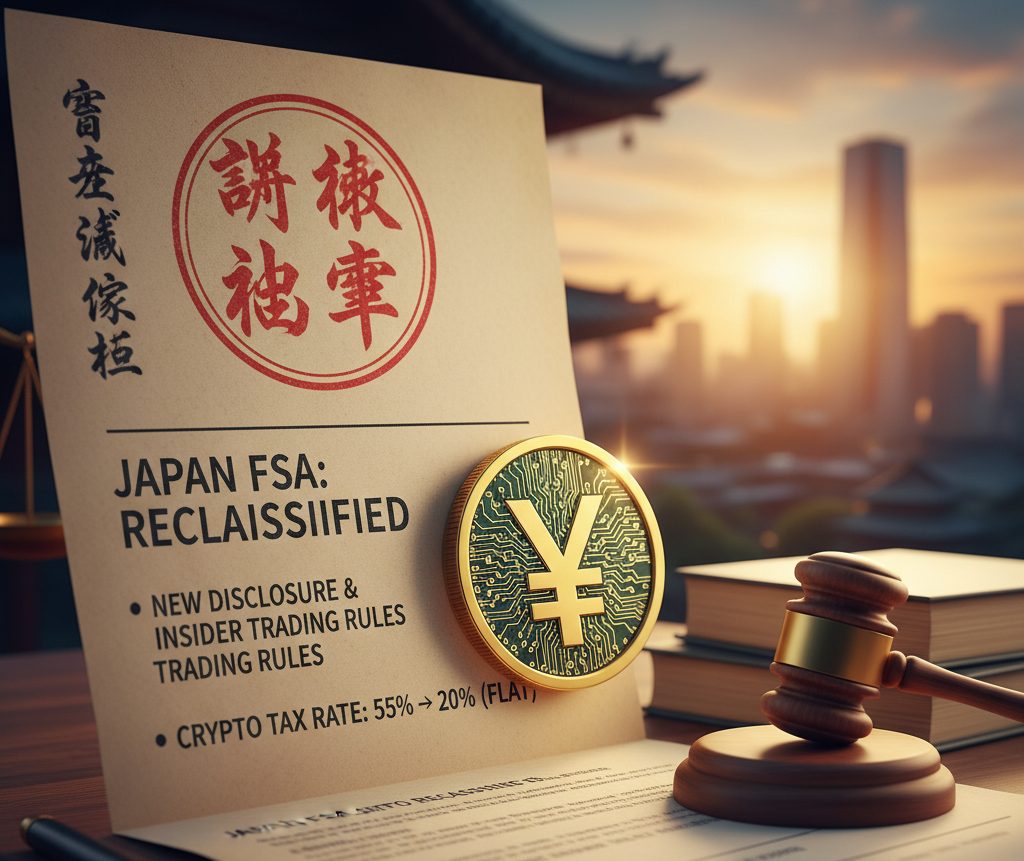New regulations are one step closer to Japan Eyes 20% Flat Tax on Crypto Gains.
The Japan FSA crypto tax proposal attempts to substitute the present-day miscellaneous income with a 20 percent rate of capital gains. Currently, JPN crypto traders are a taxed lot of 55 which is among the highest worldwide. The modification would make crypto taxation rate equal to the ones of the stock market and would be specific to the 105 crypto that will be set to be circulated domestically.
The other essence of the proposal is to propose new limitations to check insider trading. According to the new regulations, the individuals who have access to non-public information, including future listings, delisting, financial issues of an issuer, and so on, would not be able to trade the concerned tokens.
Japan Weighs Bitcoin as banks as FSA enhances regulation.
The reform will be the one in which the FSA will allow banks to invest in Bitcoin and other cryptocurrencies as investments. The existing policies are very restrictive to allow banks to own digital assets because of the risk of volatility. The agency also is deliberating on whether the large banking groups can be permitted to become licensed crypto exchanges so that the major financial groups could view themselves as licensed to provide custodial and trade services.
In Japan, the splits of crypto have to be reported today as a miscellaneous income. According to Japan FSA crypto tax reforms, the profits of approved assets would no longer be subject to capital gains regulations. The agency itself has made no official statement however, local news has reported that a coin-selection process by the agency considered different criteria such as transparency, credibility of the issuer, technological viability and the risk of market-stability.
In Japan, Insider Trading Crackdown Likely in 2026 Budget.
The updated system has severe prohibitions against insider trading.Therefore, the FSA tries to limit issuers or the exchange operators and other related parties to trade in tokens but possess undisclosed information, such as the listing dates, distress notices or suspension schemes.
Furthermore, Such requests will be contributed to the 2026 budget debates of Japan. The Japan Virtual Currency Exchange Association now has a greenlist of 30 reliable tokens on it, comprising of BTC, ETH, MATIC, XRP, and LTC among others.
The disclosure requirements will be mandatory in that exchanges will have to provide detailed disclosure on 105 approved assets. These are identity of an issuer, the central developer or not and blockchain technologies behind each project.
Ultimately, Japan FSA crypto tax reforms to foster transparency, enhance investor protection and align the Japanese policy on digital-assets with the international financial standards prior to the next parliamentary session in 2026.
